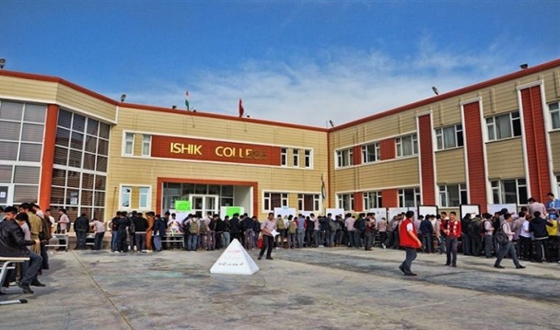Private schools and colleges with international curriculum in the Kurdistan Region have generated around 180 billion Iraqi dinars (around $145 million) in revenues in 2016, a record year in terms of collecting student fees, suggests a Rudaw research report based on private education institutions’ revenues across the country.
The rise in profits and revenues coincides with the upsurge in tuition and other school fee collections in private schools and universities. The existing data show that most private schools increased tuition and other school fees over the past years while also admitting larger numbers of students.
According to Rudaw’s research report, 14 private universities and 9 private colleges in 2016 enrolled just over 35,000 students in Kurdistan Region with applicants paying average annual fees of about $2,000.
Also, 261 private pre-college schools with international curriculum admitted over 40,000 pupils with tuition fees of about $2,000, collecting around $80 million in 2016.
The research report also shows that the private institutions have substantially benefited from government deregulations and tax-free holidays, paying an average of 3 percent in taxes last year.
Lawmaker Firsat Sofi who is critical of the low tax rates on private businesses told Rudaw the deregulations had harmed the long-term investments in education in the region.
“Unfortunately all investment projects have a 10-year tax free period, and that also applies to both foreign and domestic investors,” Sofi said calling for higher taxation.
Over 1.7 million students started their new school year in Kurdistan last September with nearly 50,000 of them entering elementary school for the first time.
Officials have in the past said that the government needed to build at least 400 schools a year over the next decade to resolve the shortage that has grown rapidly since 2005.
Around 36 percent of the 5.2 million population in the Kurdistan Region are under 14 years of age, according to official estimates, and the ratio will likely to increase given the 2.6 percent growth rate over the next decade.
Double shifts in the same school building has become too common place now, according to the Kurdish ministry of education, which causes stress for teachers who consequently need to hold shorter class-hours than normal to contain the increasing pressure.
Introducing private schools was initially a solution to the education crisis in the country but officials say the number of students had declined in 2015 for the second year in a row as many parents found it increasingly difficult to pay tuition fees, which range from $100 to $4000 annually depending on the school.
The enrolment to private schools has increased since 2016 as the country is recovering from a financial crunch.
Rudaw
14 February

























































